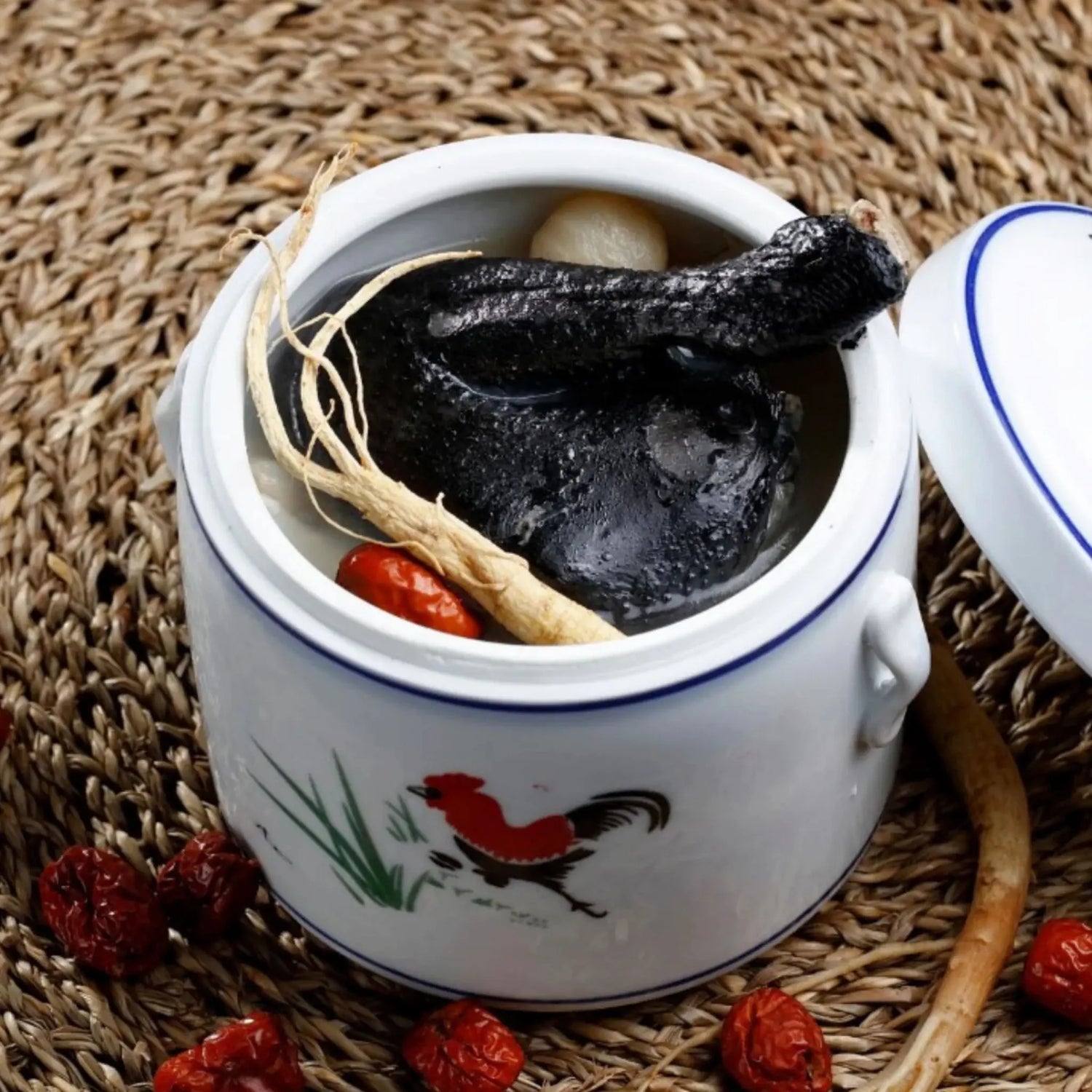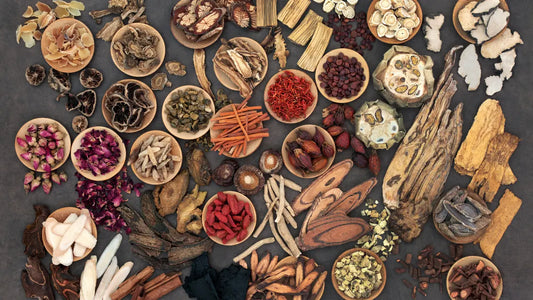Top 10 Ingredients Used in Confinement Food and Their Benefits
For centuries, Traditional Chinese Medicine (TCM) has guided the way confinement food is prepared. Rooted in a philosophy of nourishing the body from within, these meals are carefully crafted to support new mothers during the crucial first month after childbirth. But what exactly goes into confinement food—and why?
Here are 10 essential ingredients commonly used in confinement meals, along with their traditional roles and benefits.
1. Red Dates (红枣 hóng zǎo)
Often called the queen of Chinese herbs for women, red dates are used to tonify blood, boost energy, and support digestion. They’re also mildly sweet and comforting—perfect in soups, teas and desserts.
Commonly used in: soups, teas, congee, and tonic drinks
2. Ginger (姜 jiāng)
Warming and invigorating, ginger is believed to help expel “wind” from the body and reduce water retention. It’s especially common in the early stages of recovery to support circulation and reduce bloating.
Commonly used in: herbal soups, stir-fries, teas, and confinement baths
3. Goji Berries / Wolfberries (枸杞 gǒu qǐ)
Packed with antioxidants, goji berries are believed to nourish the liver and kidneys, improve eyesight, and support immune function. They add a subtle sweetness to broths and teas.
Commonly used in: soups, teas, and desserts
4. Chinese Angelica Root (当归 dāng guī)
A key herb for postpartum recovery, Angelica Root is traditionally used to tonify blood, regulate menstruation, and support hormonal balance. It has a distinct, earthy aroma.
Commonly used in: postpartum tonic soups and herbal teas
5. Black Sesame Seeds (黑芝麻 hēi zhī má)
Rich in calcium and iron, black sesame is used to support milk supply and nourish the skin and hair. It’s often ground into paste or used in buns and sweet dishes.
Commonly used in: desserts, buns, and porridge
6. Rice Wine / Shaoxing Wine (绍兴酒)
This warming ingredient is often used in stir-fries or stews. In TCM, it’s believed to stimulate blood circulation and help dispel “cold” from the body.
Commonly used in: chicken dishes, stir-fries, and broths (alcohol often evaporates during cooking)
7. Chinese Yam (山药 shān yào)
Known for supporting digestive and kidney health, Chinese yam is a gentle ingredient that blends well with soups and congee. It’s mild in taste and helps soothe the gut.
Commonly used in: herbal soups, congee, and stews
8. Lotus Seeds (莲子 lián zǐ)
Lotus seeds are used to calm the mind, aid digestion, and support sleep—important for new mums adjusting to unpredictable feeding schedules.
Commonly used in: dessert soups, congee, and herbal brews
9. Astragalus Root (黄芪 huáng qí)
Often added to tonic soups, Astragalus is traditionally used to support qi (vital energy), strengthen immunity, and aid postpartum fatigue.
Commonly used in: herbal soups, tea blends, and tonics
10. Cordyceps (冬虫夏草 dōng chóng xià cǎo)
Though more premium, Cordyceps is highly regarded in TCM for restoring vitality, improving lung function, and enhancing overall immunity—especially after childbirth.
Commonly used in: high-nutrition soups and broths
Final Thoughts
Whether it’s a bowl of red date tea or a warm congee made with Chinese yam and goji berries, or a blood nourishing black chicken chinese angelica herbal soup, each ingredient in confinement food is thoughtfully chosen with purpose. While tastes may vary, the goal is always the same: to help mothers heal, nourish, and regain strength in a way that honours both tradition and modern wellness.
At Golden Month, we build our meals around these time-tested ingredients, paired with expert knowledge and modern convenience—because every mum deserves to feel supported in her recovery journey.






